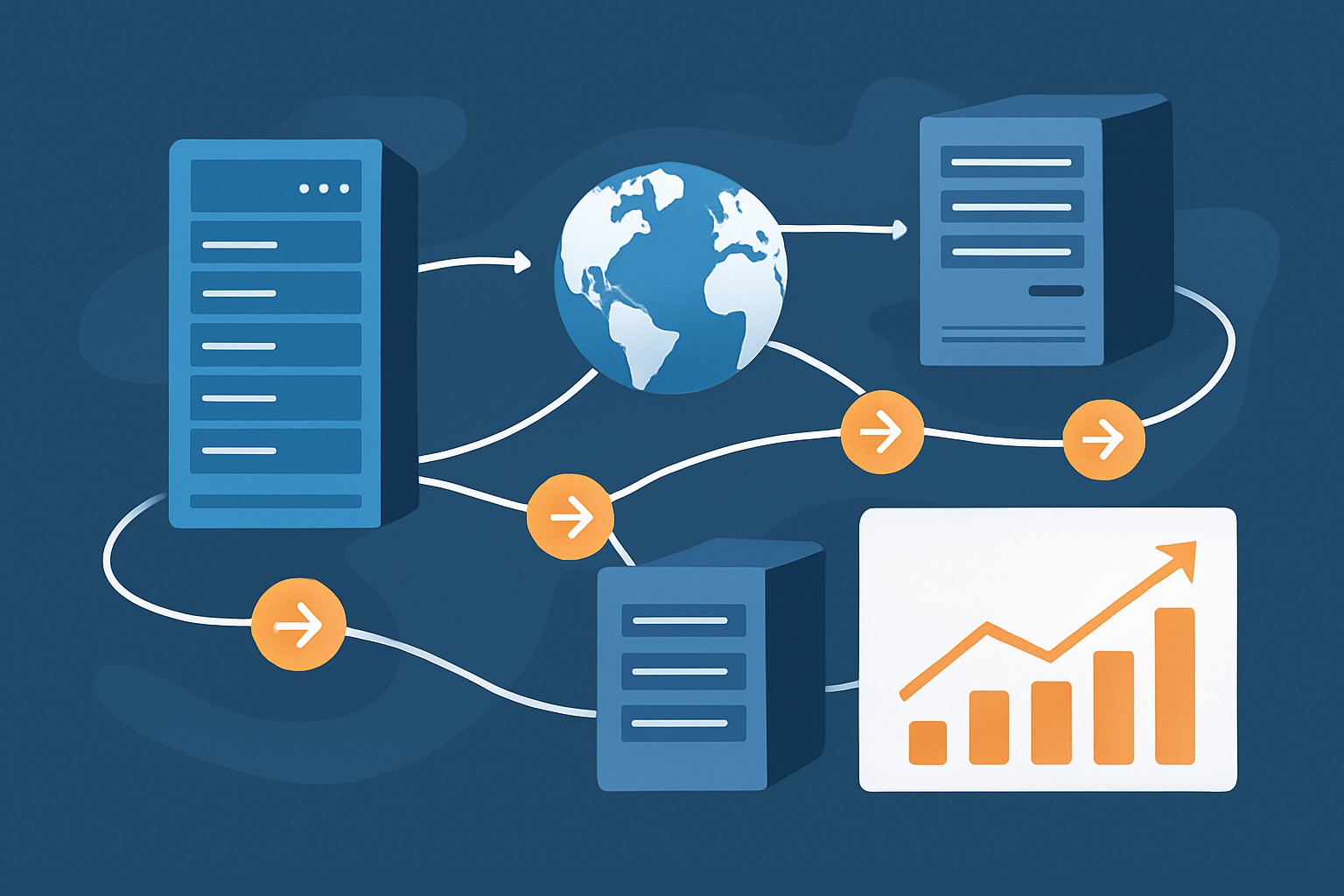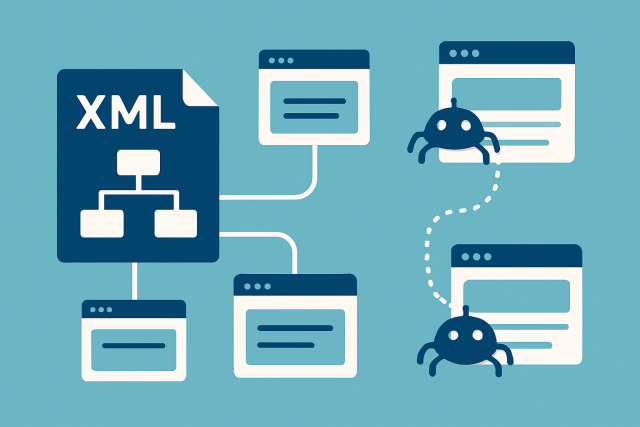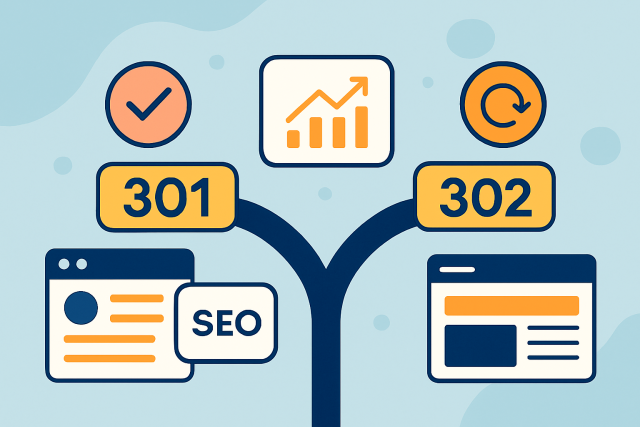
What is a soft 404 and how to fix it?
Soft 404 errors can harm your website’s SEO and user experience by confusing search engines and visi...

When diving into SEO you are bound to bump into the term CDN which stands for Content Delivery Network. Plenty of website owners wonder about CDN SEO benefits and whether a CDN genuinely moves the needle for search rankings. The link between CDNs and SEO can be murky and sometimes puzzling.
A Content Delivery Network (CDN) is basically a network of servers scattered across the globe, each holding cached versions of your website’s content. Think of it as a clever way to speed things up by delivering your site from the server closest to wherever the user happens to be.
Search Engine Optimization (SEO) is all about fine-tuning a website so it climbs higher in those search engine results pages (SERPs) we’re always chasing. Search engines use complex algorithms that weigh many factors like site speed, mobile-friendliness, security and how easily their crawlers can roam through your content. SEO’s main goal is to amp up visibility, reel in organic traffic and make sure users have a smooth hassle-free experience
A CDN really clicks with several technical SEO ranking factors. By speeding up content delivery and boosting reliability, CDNs help shave precious seconds off page load times and keep uptime steady. Many CDNs also provide robust security features like SSL support that protect user data and give SEO a boost by ensuring connections stay secure.
Faster page load speeds cut down on that annoying waiting around, which gives your rankings a nice little boost since speed is a known ranking factor.
Bounce rates usually take a nosedive when visitors enjoy quick, smooth loading—no matter what device they are on or where they happen to be.
User experience gets a global upgrade because content is served up from servers closer to each user, making everything feel snappier.
Secure HTTPS delivery backed by a CDN not only ticks the box for search engines' security standards but also helps build trust.
Better server response times mean less downtime, which makes it easier for search engines to crawl your site consistently.

Visual representation of how a CDN distributes content globally to enhance website speed and SEO.
CDNs come with some clear benefits but there are a few common misconceptions that tend to trip people up. Take the belief that simply using a CDN will magically boost search rankings without extra SEO effort. Then there’s the assumption that all CDNs operate the same way or that flipping the switch on one will instantly solve every speed or security headache your website has.
CDNs bring plenty of perks to the table but if you want to squeeze every bit of benefit out of them, paying close attention to technical SEO is key. Getting canonical tags right is like giving search engines a clear map that shows which URLs to index. This helps dodge the headache of duplicate content that appears when identical content is served from different cached spots.
Squeezing the most SEO juice out of a CDN requires a careful setup and ongoing monitoring. Choosing a CDN provider that supports SEO-friendly features, setting up HTTPS correctly, and closely watching your site’s speed and uptime all work together to keep performance humming.
Pick a CDN provider that really shines with a global reach and comes packed with features that mesh well with SEO best practices, like HTTPS and cache control. It’s a bit like choosing a reliable sidekick for your website’s journey.
Make sure those SSL certificates are set up properly and HTTPS is switched on everywhere in your CDN keeping connections secure isn’t just good practice, it’s peace of mind for your users.
Tweak your cache invalidation settings carefully so updates roll out quickly without throwing a wrench in performance. Think of it as walking a tightrope between freshness and speed.
Keep a regular eye on your site’s speed and uptime so you catch any hiccups before your visitors do. Nothing worse than slow loading pages when you’re eager to impress.
After launching your CDN, lean on SEO tools like Moz Pro to keep tabs on keyword rankings and run site audits. It’s the digital equivalent of a health check-up to spot crawl or indexing glitches early on.
A medium-sized e-commerce site decided to roll out a global CDN to stop slow loading times and high bounce rates overseas. Just three months after flipping the switch their average page load time dropped from 5.8 seconds to 2.3. Bounce rates dropped 12% while organic traffic from beyond their home turf jumped 18%.
| Metric | Before CDN Implementation | After CDN Implementation |
|---|---|---|
| Average Page Load Time | A sluggish 5.8 seconds | A nimbler 2.3 seconds |
| Bounce Rate | A rather high 48% | A more respectable 36% |
| Organic Traffic | Roughly 15,000 visitors each month | Climbing to about 17,700 visitors monthly |
| Crawl Rate | Moderate pace (daily) | Stepped up to a livelier daily plus rate |
A CDN usually gives your SEO a nice boost by speeding up your site and tightening security—this makes CDN SEO benefits clear through faster performance and better security. It also makes the user experience smoother, delivering all the factors search engines prioritize. That said, it’s no magic bullet on its own.
12 articles published
With over a decade of experience in data-driven marketing, Quentin Moreau is known for his analytical approach and innovative use of metrics to optimize online campaigns for maximum impact.
Read Pages
Soft 404 errors can harm your website’s SEO and user experience by confusing search engines and visi...

Master XML sitemap best practices to ensure your website is efficiently crawled and indexed. Learn e...

Master SEO for Single Page Applications with this detailed guide covering architecture, rendering, m...

Not all redirects are created equal. Learn the key differences between redirect 301 and 302, and dis...